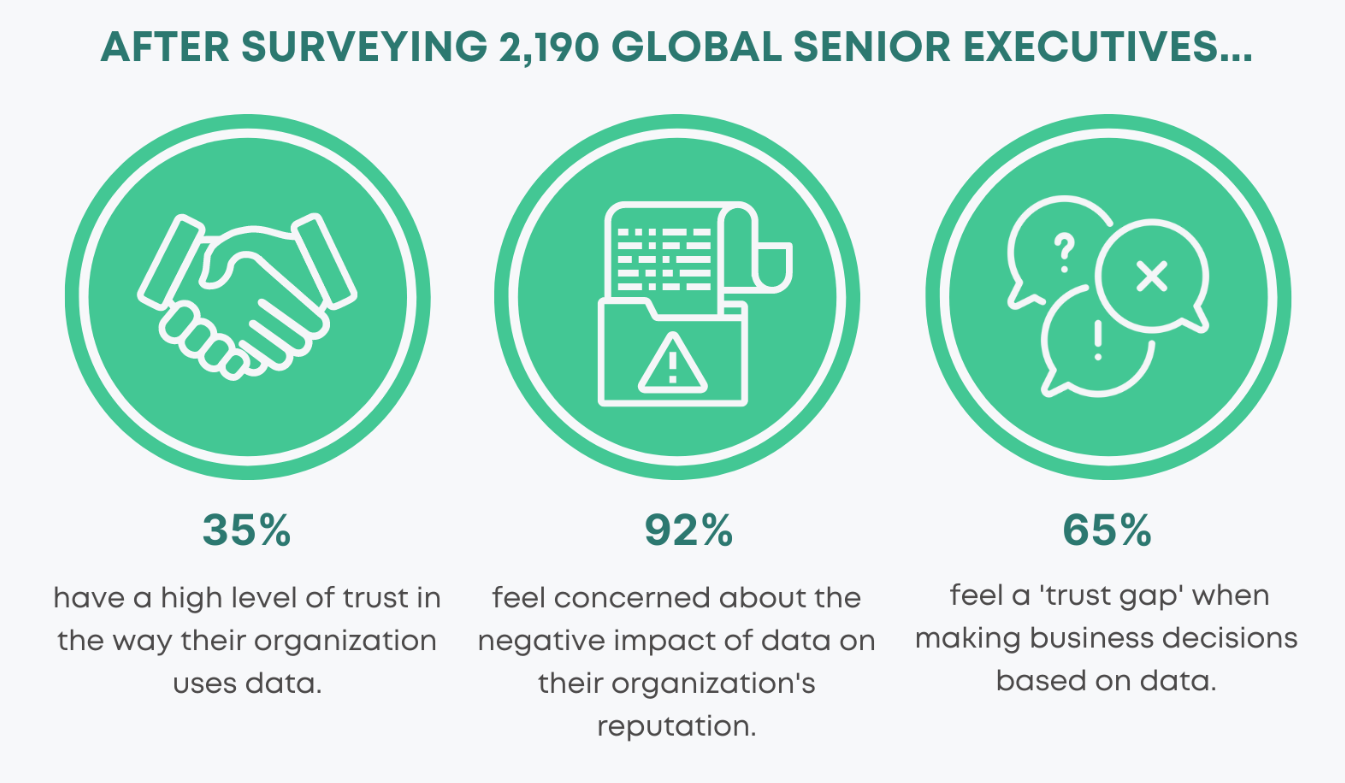Organizations routinely make data-driven business decisions, but without data reliability, those decisions are doomed to fail, resulting in poor-performing decision-making or flawed outcomes. This explains why data reliability is found in the structure behind several successful data-driven enterprises.
Reliable data is consistent, accurate, and trustworthy. Something crucial for making informed decisions as it reduces uncertainty and enables stakeholders to have confidence in their analyses and actions.
While this might sound obvious, as nobody imagines making extremely important business decisions based on unreliable and untrustworthy data, research reveals a bitter reality.
Indeed, after surveying 2,190 global senior executives, a recent report from KPMG International –a tax and advisory firm– shows that only 35% of senior executives have a high level of trust in the way their organization uses data analytics. That accounts for a total of 65% feeling a 'trust gap' when making business decisions based on their data.

Yet, data that is unreliable can have devastating consequences for your business. Let’s see it in more detail.
Flawed Analyses and Decisions: Inaccurate or inconsistent data can lead to flawed analyses, misinterpretations, and erroneous conclusions. This, in turn, results in decisions based on faulty information, potentially leading to adverse outcomes.
Damaged Stakeholder Trust: Unreliable data erodes trust among stakeholders. When decisions are made based on flawed information, it undermines confidence in future analyses and decisions, damaging relationships and credibility.
Operational Inefficiencies: Using unreliable data can result in inefficiencies in business operations. Decisions made on inaccurate information may lead to suboptimal resource allocation, inefficient processes, or missed opportunities.
Financial Losses: Poor data quality can have direct financial implications. Incorrect forecasts, misjudged investments, or misguided strategies stemming from unreliable data can lead to financial losses for the organization.
Undermining Business Success: Ultimately, the cumulative effect of relying on unreliable data can hinder business success. It impacts competitiveness, impedes innovation, and inhibits growth, hindering an organization's ability to achieve its goals and objectives.
In essence, reliable data is the cornerstone of informed decision-making, fostering confidence and trust among stakeholders. Conversely, unreliable data not only leads to flawed analyses and decisions but also damages trust, leads to operational inefficiencies, and can significantly impact an organization's success and competitiveness in the long run. Therefore, ensuring data reliability is crucial for organizational resilience and sustained success.